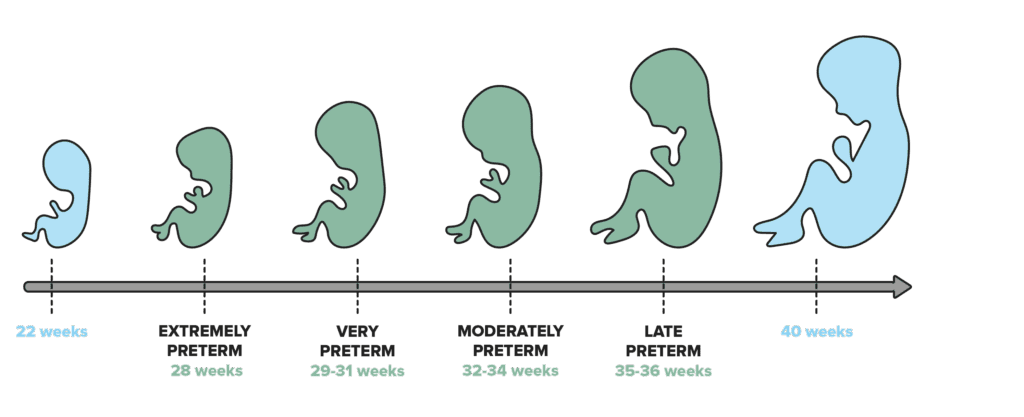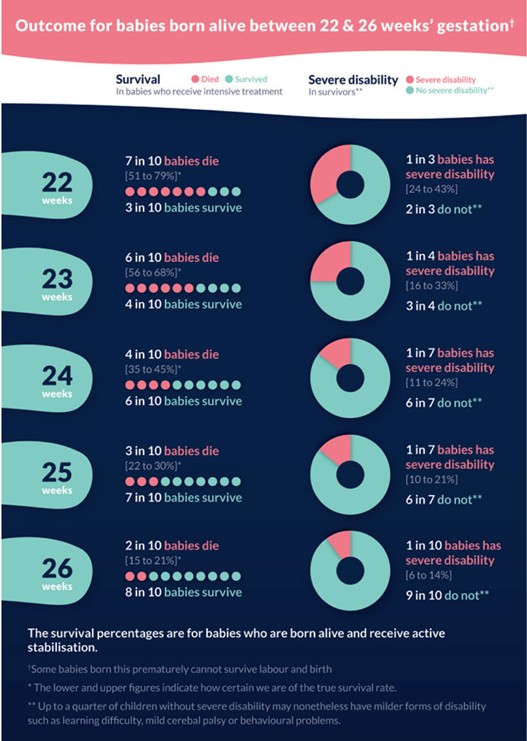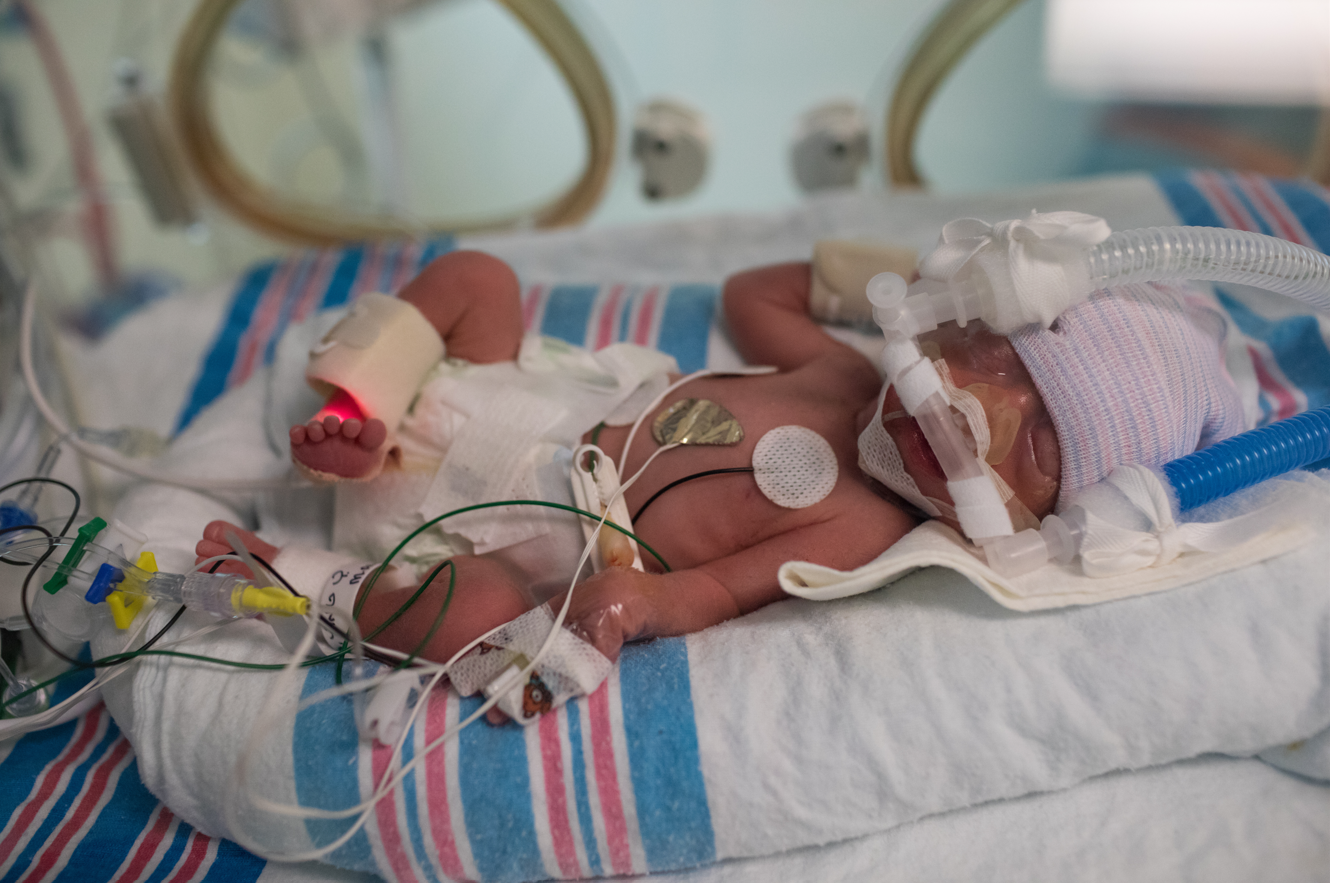What is prematurity?
About 1 in 13 babies are born prematurely in the UK or 53,000 per year. A premature baby is one born before 37 weeks of pregnancy. Being born before pregnancy has reached term (usually around 40 weeks), means all the organs and systems are less mature, with a higher chance that they develop incorrectly.
The earlier the baby is born, the more problems they are likely to have, and these problems are likely to be more serious and longer-term. 20% of premature babies are born before 32 weeks, 80% after this.

What are the the outcomes for premature/preterm babies?

The above infographic to help explain current outcomes for extremely preterm infants (developed with parental input). Source: BAPM Frameworks for Practice: supporting neonatal staff to optimise perinatal care | Article | Infant journal
What do parents experience when they have a premature baby?
It can be very frightening going into labour early, or being induced into labour early for medical reasons and parents will be concerned that their baby may die or be left with serious health problems. They may have not yet have prepared the home or other siblings for the baby’s arrival.
It is likely that the baby will be admitted to the Special Care Baby Unit (SCBU) or Neonatal Intensive Care Unit (NICU). Their baby will be in a special cot with a plastic cover to keep them warm. They will often have tubes to help them breathe, give feeds and other medicines.
Mums cannot breast feed and need to express milk to give their baby or use specialist formula. Breast feeding is important for bonding, and it can be hard for mums to not be able to do this, there can also be a stigma about using formula even though some premature babies require it. Some babies do not develop the skills to latch on to the breast and so mums must continue expressing milk at home. Although every effort is made to include families with cuddles, helping with feeding, and basic care; the medical aspects and feelings of anxiety can make bonding more difficult and may impact on longer term parental attachment.

Families may be receiving care from multiple professionals such as physiotherapists, speech therapists (who also support with swallowing), dieticians, occupational therapists, and psychologists as well as the team on the NICU. This can be complicated to process and for some parents it is overwhelming.
Parents who have other children will be torn between being at home with them and staying with their new baby in the hospital. This can be very stressful and impact their ability to work and therefore finances.
When their baby starts to improve many of the tubes and monitors will be removed. This can also be a very stressful time for parents as they start to take more responsibility for their child’s care and lack the reassurance of monitors.
When the child goes home, parents are often excited but very anxious and miss the immediate support of professionals. They may have to tube feed their child, manage medication, or give their child oxygen. The baby will often not sleep well, they may cry a lot and have reflux which can cause vomiting. The families Health Visitor and GP can provide help with these issues. They will need to attend regular appointments to check their child’s growth and development, undertake physiotherapy, wean them off oxygen and review medication. Much of the uncertainty about the long-term outlook for their child remains. Many babies will need follow-up by specialist paediatricians for at least 2 years, and some will have ongoing medical or developmental issues affecting them life-long.
Around 40% of parents (both mums and dads) with babies in the NICU experience Post Traumatic Stress Disorder (PTSD) that involves flashbacks, nightmares, difficulty concentrating and panic attacks. This needs to be recognised and treated or it can contribute to long term mental health issues.